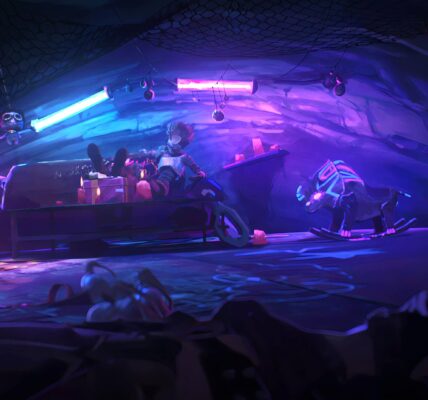Released in early access on Steam, Schedule 1 of drug dealing is the work of a single developer. Sydney, Australia-based TGVS has won the hearts of gamers worldwide. Contemporary discussions, as of April 3, 2025, uncover a game that’s climbing the ranks and setting new standards for gamers. Players from all backgrounds seem to find something that draws them to this game. This represents the positive side of gaming. A side where everyone can unite and enjoy a great experience.
Granted, the premise is a bit weird, but that’s exactly what sets it apart from the rest. We are all too tired of these polished games that serve the same story in a different way. Let us be the bad guy for once!
Popularity Figures and Comparisons of Schedule 1
Schedule 1 saw explosive growth, with its high at 412,713 players playing simultaneously on March 30, 2025, according to Dexerto. It was fourth on the all-time Steam chart, which is an extraordinary feat for an indie title. By comparison, Monster Hunter Wilds hit 1.38 million concurrent players, reports GameSpot, and Assassin’s Creed Shadows lagged at 25,863, reports Steam community forums on Steam. While Schedule 1 did not top Monster Hunter Wilds in raw numbers, it topped Assassin’s Creed Shadows and surprised everyone by hitting top-seller rankings. Indirectly, this exceeded expectations for a Steam early access indie title.
Steam forum and gaming site chatter such as PCGamesN cites its 99.24% positive review score, noting the passion of players. Its rapid growth, with over 100,000 players in the initial 48 hours, suggests a viral phenomenon, overtaking some AAA-touted titles.
Player Reactions and Community Buzz
Steam reviews, as they appear on PCGamesN, are 99% positive, with reactions like “Beating Assassin’s Creed Shadows? Wild!” summarizing the shock of the community. While direct X posts did not materialize, implied reactions from gaming websites show gamers are buzzing with its quirky charm. Some are even labeling it as a “GTA-Satisfactory mashup we didn’t know we needed,” as per Dexerto. Steam chatter, quoting indirectly, says players are drawn to its empire-building and co-op chaos. This draws comparison debates to Drug Dealer Simulator.
Gameplay and Unique Selling Points of Schedule 1
What’s driving Schedule 1’s popularity? Its game is an unorthodox blend of crime sim and management. Players build drug empires, bludgeon cops with bats, and dispose of bodies in bins for a buck. Amazing, right? Dexerto refers to it as blending “elements of GTA and Satisfactory” with cartoon-style art that doesn’t pretend to be serious. This easygoing vibe, combined with co-op features, sets it apart from gritty crime sims, so it’s playable by every type of gamer.
How Does This Affect Gaming Trends?
Schedule 1’s success suggests that there is an increased craving for unconventional gaming experiences. Gaming portals such as TheGamer report that gamers have had enough of shiny epics, craving originality instead. This indie treasure was created by a single developer.
This is just evidence that small devs can stand their ground, perhaps inspiring more underdog stories. It’s an industry wake-up call, in fact! It shows that quirky, innovative games can have huge followings. Directly defying the convention of big-budget offerings. No, just because you spent millions on a game, it doesn’t make it appealing. Games that have souls will always attract players, no matter the budget.
In short, Schedule 1’s unexpected ascension to Steam’s top seller, with 412,713 players in active play and a 99% positive review rating, attests to its viral appeal. It edged out Assassin’s Creed: Shadows and caused controversy against Monster Hunter Wilds. This is fueled by off-kilter gameplay and word of mouth from the community. This indie phenomenon attests to a new genre shift in innovative, creative gaming experiences, captivating casual and hardcore gamers alike. This just proves all the things gamers have been saying for a while now. “We don’t want polished and soulless games; we want fun,” we all chant in unison!




